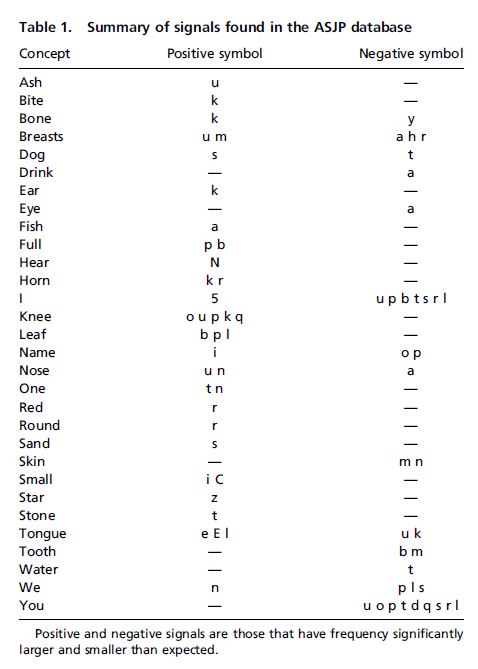Amazing . . . can’t wait for further research to confirm or refute . . .
Sound–meaning association biases evidenced across thousands of languages
(or doi: 10.1073/pnas.1605782113)
Or you can read a short version on the news site where I first learned about it:
Linguistic study proves more than 6,000 languages use similar sounds for common words
Or under a title I thought most apt:
A nose by any other name would sound the same, study finds
Here’s a list of the sounds taken from the original PNAS article (symbols are described here):
Nor can I resist the nice map from the same article:
Trying to think through the significance(s) should it be confirmed. . . . .
First, a universal grammar. . . . now this?
If you enjoyed this post, please consider donating to Vridar. Thanks!



This kind of analysis has often been dismissed by linguists as something akin to “paralellomania”; I daresay it will again here.
Not to say it’s unreasonable – the Nostratic hypothesis (which I like) might account for it; along with various onomatopoetic ideas; but we’re at a most abstract level here.
I’d love to follow it up in more depth if I had no other interests taking up my energies. I’m waiting to see what other related and follow-up research has to say, and of course analyses of the methods used in this study.
Hey Neil, huge fan of the blog here! Please keep up the great work.
I was just wondering if there was a recent study supporting Universal Grammar you had in mind, or if the last line of your entry was meant as a more general reference to the theories of Chomsky and others.
Thanks again!
Very general. I have not had opportunities to delve into the debates myself. I rely entirely upon what I hear among linguists themselves – or at least that very small subsection of the community I have contacted and the few I have read about.